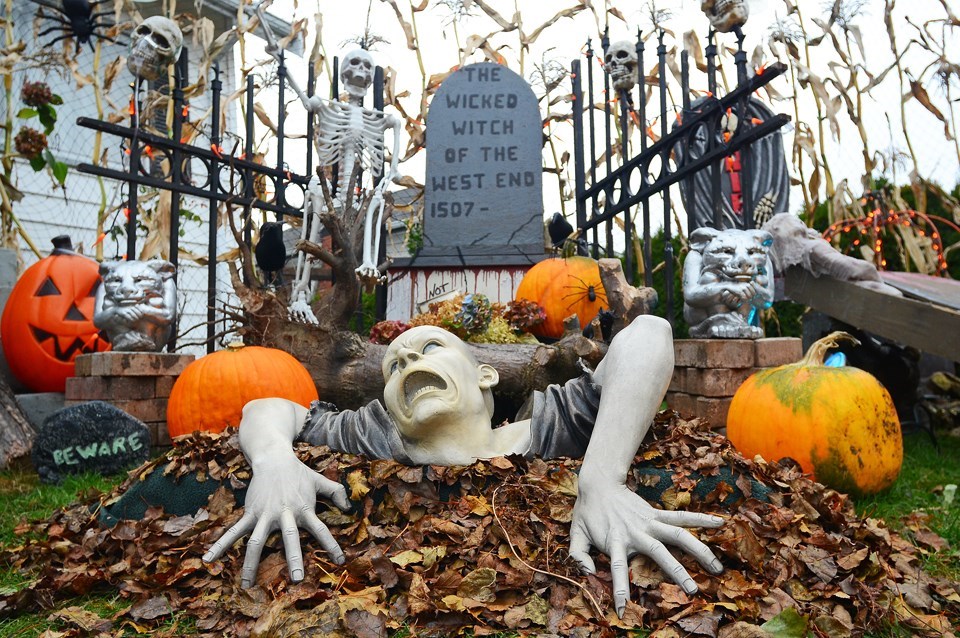This year, Halloween falls on a Thursday. Maybe you have things to do in the afternoon or night, meetings to attend (either virtually or in person) or matters to oversee. If you have young children, you may want to accompany them on their “Trick or Treat” run. The inevitable sugar rush that follows will make it very challenging to arrive to school on time on Friday.
Young adults also like to have fun on Halloween. There has not been a lot of research on productivity on “All Saints Day”, but hangovers and tired eyes and limbs are not unusual for those who show up at the office after partying on Oct. 31.
A few years ago, an internet petition in the United States called for moving Halloween to the last Saturday of October, thereby providing more time for kids and adults to recover. When we asked in 2019, just over two in five Canadians (41 per cent) liked the idea. By 2022, support for a yearly Halloween on Saturday increased to 44 per cent.
In 2024, we are back where we started from, with 41 per cent of Canadians (down three points) welcoming the idea of a set weekday for Halloween, and 44 per cent (up five points) decrying it.
Canadians aged 18-34 are slightly more likely to endorse the notion of moving Halloween to the last Saturday of October (45 per cent) than their counterparts aged 35-54 (39 per cent) and aged 55 and over (also 39 per cent). On a regional basis, Quebecers are more in tune with the proposed change (45 per cent) than residents of Ontario (41 per cent), British Columbia (also 41 per cent), Atlantic Canada (40 per cent), Alberta (37 per cent) and Saskatchewan and Manitoba (34 per cent).
An issue that has become controversial in the past few years is related to costumes. This year, we see majorities of Canadians who think two types of costumes for children are inappropriate: those that represent an ethnic stereotype (58 per cent, down two points) and those that change the colour of the child’s skin (53 per cent, down four points).
Fewer Canadians find fault with costumes for children that incorporate toy or replica weapons (48 per cent, down three points), refer to a culture that is not the child’s own (42 per cent, down one point) or that represent a social stereotype (such as a jailbird or vagabond) (41 per cent, up one point).
There is agreement across the board on the inappropriateness of a child’s costume that evokes ethnic stereotypes, with majorities of Canadians whose origins are South Asian (54 per cent), Indigenous (57 per cent), East Asian (58 per cent) and European (65 per cent) taking the same view.
The numbers fluctuate slightly for adult garments. We continue to see majorities decrying adult costumes that represent an ethnic stereotype (60 per cent, unchanged) or where the adult’s skin colour is altered (54 per cent, down six points). At least two in five adults are also against adult costumes that feature toy or replica weapons (45 per cent, down five points), refer to a culture that is not the adult’s own (46 per cent, down four points) or represent a social stereotype (41 per cent, unchanged).
While we continue to see lager proportions of Canadians saying that costumes that change skin colours—for kids and adults—are inappropriate, animosity is lower than in 2022. Still, this is not the most contentious matter as Halloween approaches.
Our questions on food and drink reveal some clear winners. Seven in ten Canadians (70 per cent, up four points) like pumpkin pie, and more than two-thirds (67 per cent, up nine points) enjoy pumpkin spice flavoured cakes. For the first time, a majority of Canadians (52 per cent) like pumpkin spice flavoured drinks, up eight points since 2022.
Candy corn remains exceedingly divisive, liked by 47 per cent of Canadians (up five points) and disliked by 45 per cent (down three points). Canadians 18-34 (50 per cent) and Ontarians (50 per cent) are more fond of this confectionery, while Canadians aged 35-54 (47 per cent) and Quebecers (49 per cent) probably will not go near it.
As we prepare to celebrate Halloween in 2024, two issues are evident. The notion of moving Halloween to the weekend every year has lost some steam. And candy corn is more contentious than costumes that make light of social stereotypes.
Mario Canseco is president of Research Co.
Results are based on an online survey conducted from Oct. 21-23, 2024, among 1,001 adults in Canada. The data has been statistically weighted according to Canadian census figures for age, gender and region in Canada. The margin of error—which measures sample variability—is plus or minus 3.1 percentage points, 19 times out of 20.



.jpg;w=120;h=80;mode=crop)